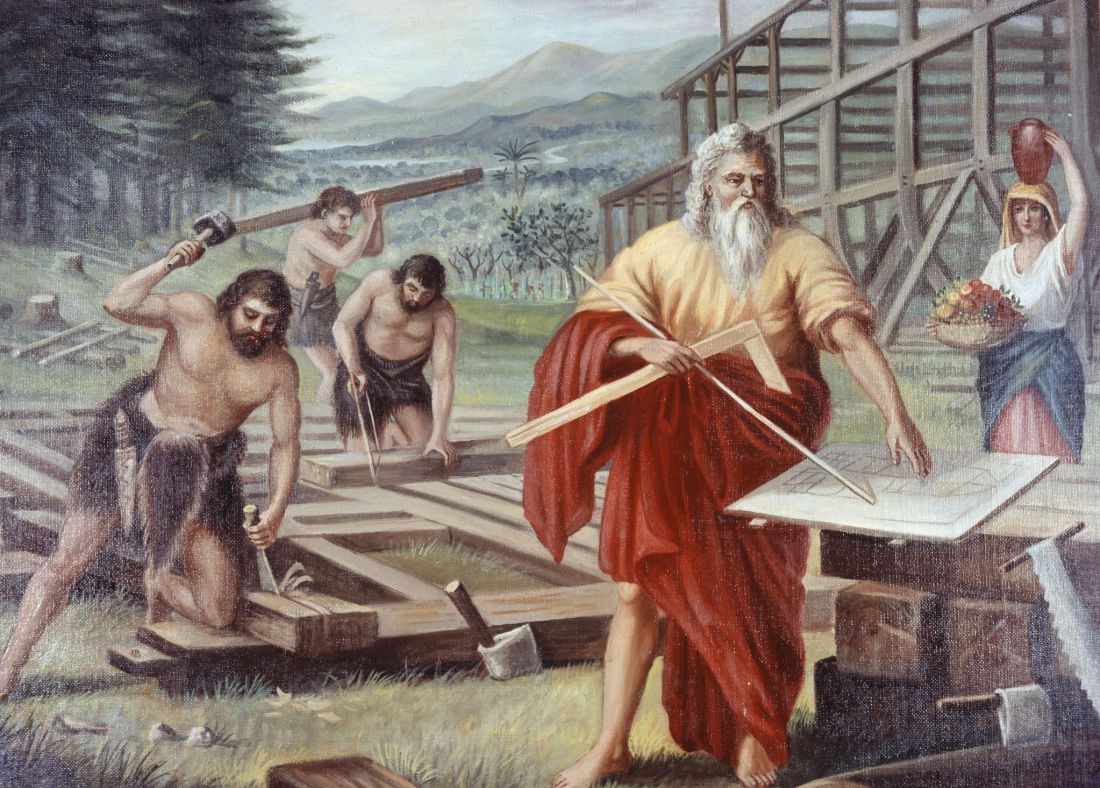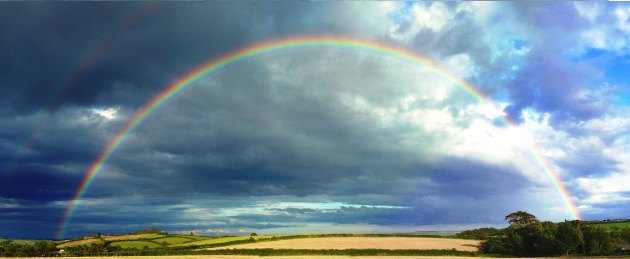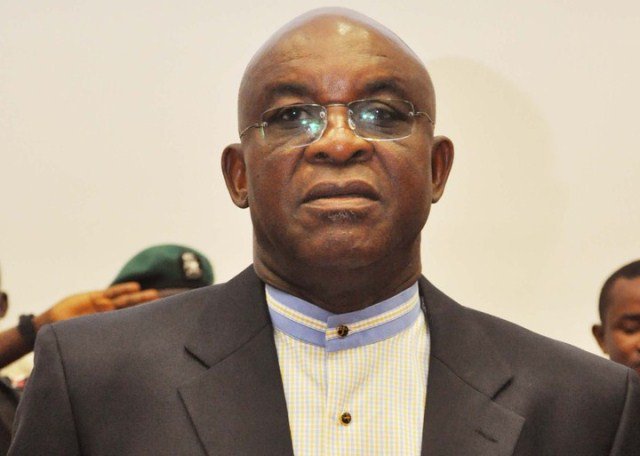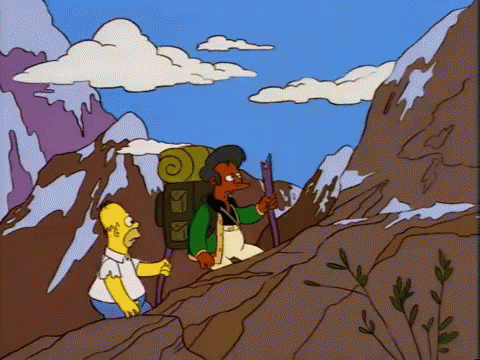
One of my daughter’s favorite books is “Noah’s Noisy Zoo,” a charming, brightly-colored work featuring screeching monkeys, trumpeting elephants, and a smiling Noah. Children have always been captivated by the mythic proportions of this story, me included. There is something about the giant boat, the parade of animals, the flood and the rainbow that capture the imagination.
But students of the Bible know that the Noah account does not leave Noah in the realm of mythic hero. His story continues to reveal a somewhat broken and, well, human man. Showing us Noah’s weakness reveals how he overcame his lower nature to complete his mission. It was this mission that fueled Noah’s courage, integrity, and determination to take dramatic action in obedience to God.
Noah is a One on the enneagram, a man who’s most basic desire is to have integrity and be good. The Bible tells us that Noah was “a righteous man, blameless among the people of his time.” It must have been challenging to maintain his integrity when wickedness was all around him. Indeed, mankind as a whole had grown so corrupt that “every inclination… of his heart was only evil all the time.”
But Noah isn’t like his compatriots, and God recognizes this. God affirms Noah’s goodness, making it clear that Noah has found favor in His sight. Like so many mature Ones, Noah has developed wisdom and discernment. These have come as a result of “walking with God.” Noah’s practice of communing with God, hearing from Him and obeying Him, was established long before God’s commission for Noah. This commission was the very thing Noah needed as a One: to put his righteousness into action.
At his core, Noah was a man on a mission. God told Noah His plan to destroy all other life on earth through a flood and to save Noah and his family. This was to be done through the meticulous building of a giant ark. He then gave Noah all of the necessary details for execution. Noah’s response is like that of a soldier answering his commanding officer: “Yes, sir.” There are no questions, no bargains, no alternative actions proposed. God gives Noah instructions and Noah obeys.
But Noah is no cog on a wheel – he has been waiting his entire life for this mission. Riso and Hudson say Ones are “people of practical action – they wish to be useful.” Noah was certainly aware of the ways in which his society’s moral failings were grieving God’s heart. He acted out of the conviction that this could be overcome by executing God’s plan.
Building the ark must have required tremendous self-discipline from Noah. Like all healthy Ones, who set aside their own needs and desires to serve the greater good, Noah’s life became consumed by God’s project. Noah may have been spry for a 600-year old when the flood finally came, but it’s reasonable to assume that the better part of a century was spent building the ark.
Fortunately, Noah had a crew of sons to help build the ark, but I don’t imagine he was content in a hands-off-contractor role. Ones like to lead by example, working with complete integrity and precision in all they do. These were essential traits in a first-time boat builder; poor craftsmanship would have meant the end of all life on earth. Noah may have suffered sore muscles, ridicule from neighbors, mental fatigue from the scale of the project, but he never let these feelings deter him from his mission. Noah successfully completes his mission, and God fulfills his covenant with Noah, sealing it with a rainbow.
But, as I mentioned earlier, that is not the last we see of Noah. After the ordeal of the flood, the man needs a drink! But he doesn’t stop after just one – his son, Ham, finds his father lying drunk and naked in his tent. This episode illustrates a One’s move to unhealthy Four in times of stress. Noah is moody, melancholy and withdrawn. His drinking is evidence of self-indulgence that was never present before. Perhaps it was the stress of all that had just transpired catching up with him, or a hole in his life that the ark mission had previously filled.
Noah becomes enraged at Ham, who has told his two brothers of his father’s state. They cover Noah up with “their faces turned the other way so that they would not see their father’s nakedness.” Noah is so angry with Ham that he calls down curses on his own son, saying “Cursed be Canaan! The lowest of slaves will he be to his brothers,” a heavy blow for what seems like a relatively minor infraction.
Riso and Hudson pose an interesting insight, saying that “Ones may fear that because they have been so strident in expressing their standards, others will hold them mercilessly accountable for their errors. These fears may be based on facts.” Noah was obviously a principled man, whose every action prior to this incident met his deep need to avoid fault and blame. Now he’s guilty and every other man on earth knows about it, so he lashes out.

But it is precisely Noah’s weakness, his contribution to the darkness, which makes the sign of the rainbow all the more powerful. God’s seal on the promise that He will never again bring waters to end all life covers Noah’s indiscretions, too. We see that it was God’s mission and power in Noah that allowed this human man to achieve great feats, not Noah’s superhuman capability. The same rainbow is a promise for us today. If we listen and obey, we may just find God’s mission for us.
Advertisements Share this:





